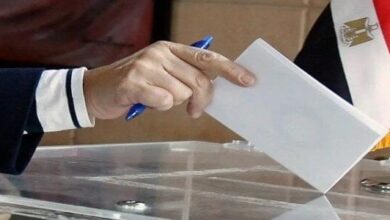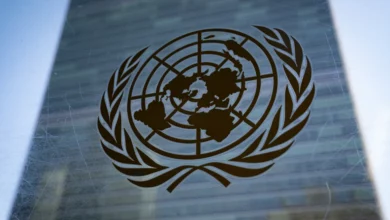As money sent home from Egyptians abroad reaches a record level, President Mohamed Morsy and his government have pinpointed this source of income as one of the key tools in their diminishing arsenal against the country’s financial crisis.
Remittances, money earned abroad by Egyptian expatriates and sent home, reached a record US$19 billion last year, compared with only $14.3 billion in 2011, according to Central Bank data.
This 33 percent increase is in line with the general trend over the last decade. Central Bank statistics show remittances increased sixfold between 2003 and 2012.
With foreign reserves at a critical level, this inflow has become a vital source of foreign currencies inside the country.
With other options for injecting foreign country, such as the $4.8 loan from the International Monetary Fund, delayed or off the table, government officials are striving to find new ways to further increase this source of currency, in effort to bolster the value of the Egyptian pound, among other things.
The Freedom and Justice Party recently launched a campaign under the banner, “Your money transfers support Egypt’s economy and development.”
An article on the English-language website for the Muslim Brotherhood said the campaign’s aim is to convince Egyptian expatriates to transfer more foreign currency money to Egyptian bank accounts. The article quoted sports commentator Alaa Sadek as saying that Egyptians living abroad who weren’t able to participate in the 25 January revolution can see their deposits as a way to show their patriotism remotely.
“What they’ve done is equivalent to effectively participating in the Revolution,” he said.
Family first
However, it seems that as of yet, there has been no large response to the Brotherhood’s calls.
Rather, many Egyptians having recently rushed to change their pounds to dollars as the pound’s slide has accelerated, taking more dollars out of the banking system.
“I believe such calls went unheeded before and they won’t get much support this time either,” said Amr Adly, economist at the Egyptian Initiative for Human Rights.
During the 1960s, former President Gamal Abdel Nasser also tried to capitalize on the Egyptian diaspora’s deeper pockets. He asked expatriates to contribute to the modernization of the country, and imposed a 25 percent tax on remittances.
The calls were not heeded, and the tax was unprofitable, as expats found other ways to send money home.
Michael Newson, Labor Migration Specialist at the International Organization for Migration, says it’s unlikely that expatriates will send more money on the basis of patriotic feelings alone.
“The main motivation globally to send remittances is to help family,” he says.
It seems that this principle is even more the rule with Egyptian migrants. About two-thirds of the 3 million Egyptian expatriates live in Gulf countries. These migrants are mostly unskilled male workers who are employed on a temporary basis.
For most, their ties with Egypt remain very strong. A recent IOM study estimated that about 80 percent of these migrants had a wife in Egypt, and that remittances from the husband were a key source of income for the family in Egypt. The IOM estimated remittances constituted, on average, 43 percent of the migrant’s household income.
“Remittances automatically increase when the country of origin faces a crisis,” explains Newson. For instance, The Philippines, another major remittance destination, saw a strong increase in remittances after a natural disaster there.
For Newson, the recent increase in remittances can be explained by trend of increasing remittances worldwide and by the economic crisis faced by migrants’ families in Egypt.
“Globally, those policies resorting to patriotism have not worked,” says Newson. “Migrants are happy to help their country if they also find their interest in doing it.”
The unskilled majority of migrants, it seems, cannot send much more than what they are currently giving. IOM found that most migrants to Gulf countries do so to save money and secure a better future for them and that of their children, and sometimes to accumulate enough money to get married.
Remittances are largely spent on the most basic products and services by families: food, education and healthcare. According to the survey, 78 percent of receivers do not use the money for recreational activities.
Researchers found that 15 percent of the money sent from a spouse or family member abroad was kept as savings.
Egyptians in the West
According to the Central Agency for Public Mobilization and Statistics, about 1 million skilled Egyptians with college degrees live abroad. They represent around one third of all migrants. About 80 percent of these expatriates live in the West, mostly in the US, but also in the UK, Italy and France.
This group, Newson says, usually stays longer in its destination country. Most of them live with their family and children.
However, they maintain strong ties with Egypt. Most of them participate in local Egyptian associations, visit Egypt every year and closely follow Egyptian news. They also send more remittances than the lower-skilled workers.
The Egyptian government has understood since the 1970s that emigration could be a way to increase currency inflow while relieving its crowded labor market.
In this spirit, numerous laws were issued that tightened links between long-term expatriates and their home country. Legal emigration became a constitutional right. Money earned abroad by Egyptians is not taxed. Sons of emigrates born abroad received Egyptian nationality, and dual nationality children do not have to complete obligatory military service. Numerous international agreements have been made to protect Egyptians abroad.
But despite these efforts, experts say officials have yet to turn remittances into the source of wealth they had imagined.
“The government has not managed to channel these remittances toward investment and sustainable development,” Newson says.
An IOM survey reveals that 68 percent of Egyptian migrants are interested in investing in Egypt.
However, 62 percent of them do not think their area of origin in Egypt to be “conductive” for business. And 76 percent believe government rules and regulations create unfavorable conditions for investment.
Red tape, taxes and corruption are the most frequently cited obstacles to investment.
“The government did not create the proper tools to attract these potential investors,” says Newson.
He said Mexico could provide a useful example. There, leaders developed infrastructure programs where, for every dollar invested by the migrant, three dollars were added by the state and local agencies.
But there are other reasons emigrants to the West might be reluctant to send money to Egypt for development. Experts say Egyptians living in the West are more likely to disapprove of the government and its practices.
Another IOM report on the Egyptian diaspora examines the reasons behind the choice to leave Egypt. While the majority of migrants in the Gulf have emigrated for economic reasons, migrants in the West often went for other reasons.
Personal development, escaping perceived corruption and prejudices, and seeking adventure were popular answers, all of which demonstrate dissatisfaction with the state of things in Egypt.
Morsy has yet to change these migrants minds, experts say, which explains why most are more comfortable investing in small-scale projects benefiting family members than in anything involving the public and corporate sector.
The institute found that 90 percent of expatriate investments migrants were either in real estate, small businesses, or social projects.
Though Egyptian expatriates remain committed to supporting relatives back home, Newson says the government should not interpret this to mean it will see a growing influx of foreign currency.
“They will credit their accounts in pounds if they feel the pound has reached a low point and if they see it as an opportunity,” says Newson.
Adly is even less optimistic.
“There is no trust in the banking system,” he says.
He says recent limits put on withdrawal and transfers of dollars will only further increase this distrust.
To benefit from Egyptian money abroad, he says, the current government will first have to rebuild trust, not play on expatriate’s patriotism.




